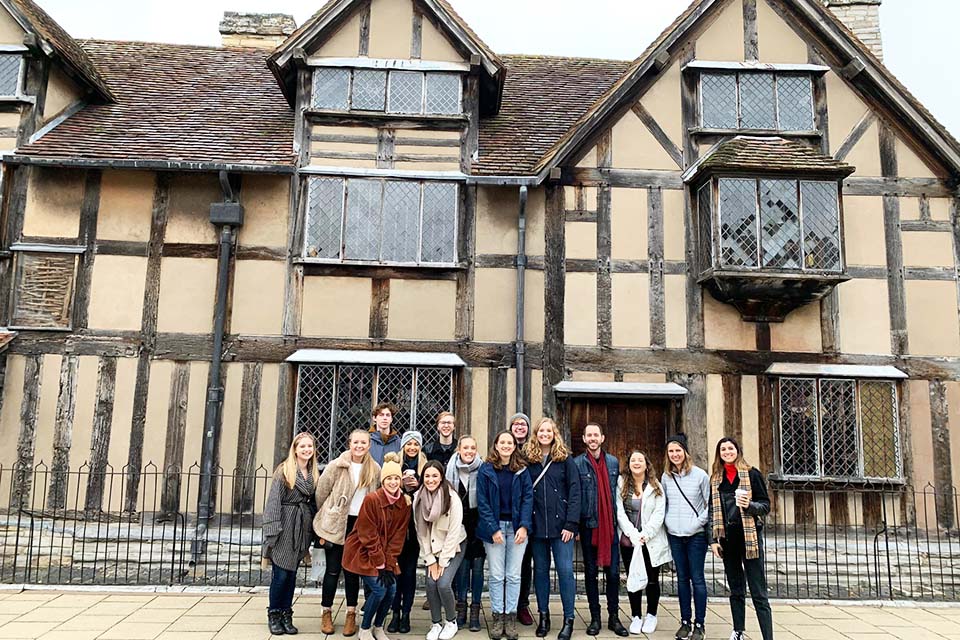Following the Footsteps of William Shakespeare
How have Shakespeare's works become so deeply embedded in our culture? Why are they still being read today? How are they still relatable in modern contexts, having withstood the test of time?
In Dr. Ryan Day’s Early Shakespeare class, these overarching questions underlie the semester-long study of the life and works of one of the world’s greatest dramatists. To bring the big questions posed in the classroom to life, Day and his class travelled north to England to spend a weekend in Stratford-upon-Avon, the village where Shakespeare was born.
To kick off the weekend-long program, the class attended a performance of "King John" at the Royal Shakespeare Theatre. A modern interpretation of the play using Shakespearean language, students unanimously agreed that the performance was not only entertaining and original, but seeing it staged deepened their understanding of the work itself.
The trip continued the next day with a rainy walk through Stratford-upon-Avon, tracing the life of Shakespeare by visiting main landmarks: his birthplace, Anne Hathaway's Cottage, Hall's Croft and Shakespeare's New Place. SLU-Madrid senior, Scott Rose explained, “The four points of the tour all had actors who were excellent at explaining what England and Shakespeare's life were like during the 1500s-1600s.” A tour of the literary icon’s life would be left incomplete without visiting Shakespeare’s grave.
Over the course of the rainy walking tour, the group also strolled through residential and wooded areas apart from the main historical attractions, which Rose identifies as one of the highlights of the day.
Impressed by the performance they had seen by the Royal Shakespeare Company the night before, Rose and several other students headed back the second evening to see another play performed by the same company: "A Museum in Baghdad."
When reflecting on the significance of the trip in terms of understanding the major questions Day poses in the class, Rose said, “Although these questions may not have a single answer, the trip to Stratford definitely helped me appreciate Shakespeare's works in a new way, especially to see how humbly he lived and yet still became one of the most important contributors to literature in human history.”
